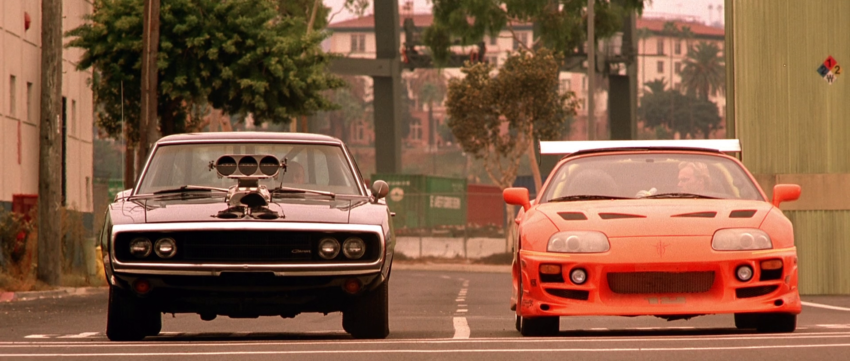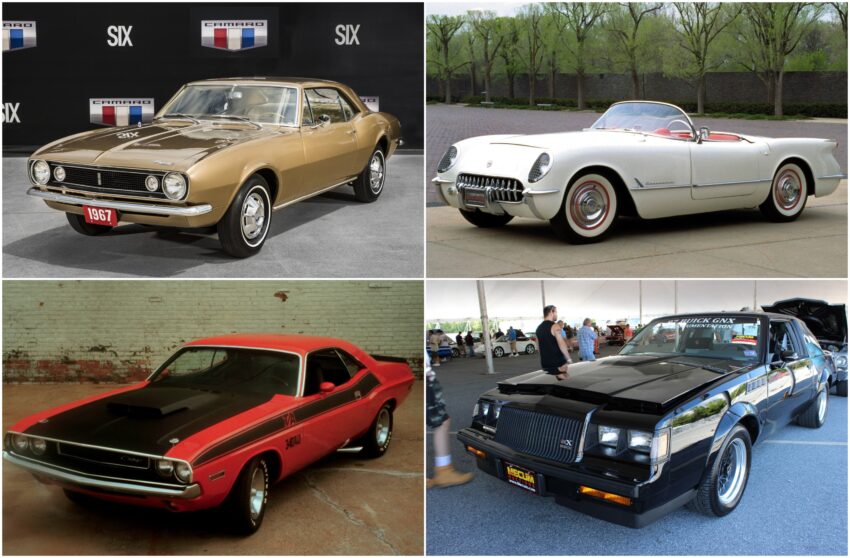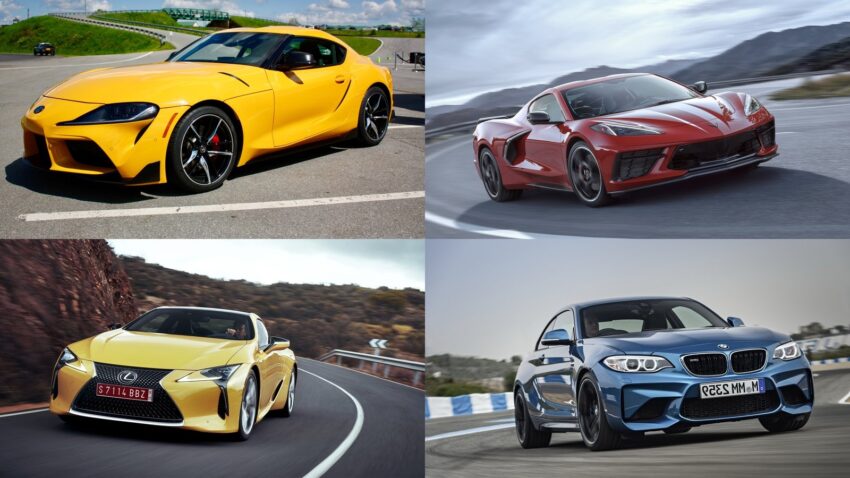Sports cars and muscle cars are built to travel at high speeds and are fun vehicles. Muscle cars have more powerful engines as well as bigger, nicer exteriors. They go at the fastest speed when traveling on most straight lines. The sports car is compact, and slim and hugs the road closely when driving, giving the driver a better sense of control, especially when going into sharp turns at high speed.
Muscle car vs sports car are often associated with each other, although they are not the same thing. Sports cars are smaller and more affordable than muscle cars, and manufacturers have provided them with separate engines to accommodate their size differences. Are you thinking of expanding your collection with one of these high-performance cars? To choose which car is best for you, compare the differences between muscle car vs sports car.
Contents
What Is A Muscle Car?
Muscle cars are distinguished by powerful engines and large boxy shapes. Consider classic cars such as the 1976 Pontiac Firebird Trans Am, the 1969 Chevrolet Camaro and the 1970 Dodge Challenger. They are distinctive for their tall, boxy hoods, which house larger-than-usual engines. Recent muscle car engines are not significantly larger than conventional car engines thanks to modern technologies. However, they often still have a traditional design.
In the 1960s and 1970s, classic muscle cars remained a popular vehicles among car enthusiasts. However, there are also many contemporary muscle cars. Dodge Challenger SRT Hellcat, Chevrolet Camaro SS, Dodge Charger SRT Hellcat, and Ford Mustang GT are some of the recent models.
What Is A Sports Car?
Sports vehicles are compact and stylish, in contrast to muscle cars’ size and dominance. Their aerodynamic design was influenced by race vehicles. The Porsche 911 Carrera, Mazda MX-5 Miata, Jaguar F-Type, and Audi R8 Coupe are some of the most well-known sports vehicles on the market right now.
The Differences Between
Muscle Car vs Sports Car: Design
Muscle car vs sports car has a significant difference in design. When comparing the two types of cars, it can be said that the sports car has a European style while the muscle car has an American style. Today, this doesn’t seem to matter as both cars are manufactured in Europe, Asia, and the Americas. However, this is a fundamental component when it comes to the basic design of any style. Muscle cars are designed to appear powerful and have sharp corners, giving them a more boxy appearance. Sports cars are designed to be more aerodynamic, with steep curves for a sleek, futuristic look.
Muscle Car vs Sports Car: Torque
The primary characteristic of muscle vehicles is their tremendous power and higher torque than sports cars. A muscle automobile is definitely something you buy for torque. More so than a fast engine’s horsepower, muscle vehicles can accelerate rapidly because the majority of this torque is concentrated on the rear tires. They are therefore highly good at gaining speed in a straight line. Because of this, drag racing with muscle vehicles is fairly common.
Muscle Car vs Sports Car: Engine
Since they are designed to achieve distinct goals, sports cars, and muscle cars’ engines will almost always be fundamentally different. A muscle car’s engine is designed to be large and strong from the ground up (this is what gives these cars so much torque). On the other hand, sports car engines are made to be smaller, lighter, and rotate quickly, giving their vehicles a lot of horsepowers.
Muscle Car vs Sports Car: Control
Typically, sports automobiles are designed to be lightweight and nimble. This indicates that they are far simpler to drive and more maneuverable than muscle vehicles, which are frequently constructed of heavier materials and prioritize power over control. Sports vehicles are therefore excellent at managing bends and navigating through confined places. Better handling may be added into and fine-tuned into muscle vehicles, but sports cars naturally possess this quality.
Which is better?

Both sports cars and muscle vehicles are enjoyable to drive if you want a good time. It all depends on the experience you seek; none is superior to the other. You could enjoy driving a muscle car if you require extra storage, desire a vehicle that feels strong, and frequently travel straight highways. A sports vehicle, on the other hand, can be for you if you want high control and speed on curved roads or want something more fuel-efficient.
Conclusion
Now you have the answer to the difference between muscle car vs sports car? If you compare all the factors, you can choose the right car for you. If you like a car with a powerful and luxurious look then choose a sports car and if you want a monster with a powerful engine and aggressive looks then a muscle car will suit you. And once you’ve identified your favorite car, visit our website to discover great models.


